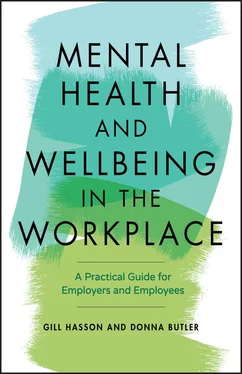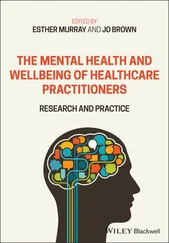For example, 7.7 million adults aged 55+ say they have experienced depression and 7.3 million have suffered with anxiety, according to 2017 YouGov research for the charity Age UK. For people over 55, the death of loved ones, their own ill-health, and financial worries are the most common triggers for mental health problems.
In their 2016 report Mental Health Problems in People with Learning Disabilities , The National Institute for Health and Care Excellence (NICE) state that mental health problems in people with learning disabilities are more common than in the general population, with a point prevalence of about 30%.
People from a Black, Asian, and minority ethnic (BAME) background are, according to the UK Mental Health Foundation, generally at higher risk of mental ill-health. They also report that Post Traumatic Stress Disorder (PTSD) is more common in women of black ethnic origin.
The Mental Health Foundation report that evidence suggests people identifying as LGBT are at higher risk of experiencing poor mental health such as depression, suicidal thoughts, self-harm, and alcohol and substance misuse – compared to heterosexual people, due to a range of factors, including discrimination, isolation, and homophobia.
Whoever we are, whatever our circumstances, and whatever the statistics, what's most important is to recognize that we all have mental health. The spectrum ranges from a positive, healthy state to a poor or extremely poor state of mental health with severe symptoms or conditions. It's also important to know that our mental health can fluctuate, depending on life situations, and on how we manage our mental health.
Defining Mental Ill-health
Mental illness happens when the way a person thinks and behaves causes significant distress or impairs their ability to function. Mental disorders are usually defined by a combination of how a person thinks, feels, perceives and behaves.
The WHO state that ‘Mental disorders comprise a broad range of problems, with different symptoms. However, they are generally characterized by some combination of abnormal thoughts, emotions, behaviour and relationships with others.’
Mental ill-health can develop gradually or be a sudden change in the way you approach your life and the way you think, feel, or react and this can create difficulties in your daily living. As a result, life can become very difficult to cope with. There can be periods where it is transitory, where the feelings, thoughts, and behaviours are not experienced for very long, or are intermittent. At other times it may be a prolonged and protracted episode, and seem as if it will never pass.
Mental health problems can range from problems such as depression and anxiety, eating disorders, and addictive behaviours, to rarer problems such as schizophrenia and bipolar disorder, personality disorders, and PTSD.
On their website, Mind explain that ‘we all have times when we struggle with our mental health, but when these difficult experiences or feelings go on for a long time and affect our ability to enjoy and live our lives in the way we want to, this is a mental health problem. You might receive a specific diagnosis from your doctor, or just feel more generally that you are experiencing poor mental health.’
Recognizing and Understanding Specific Mental Health Problems
Stigma and lack of awareness surrounding the spectrum of mental health problems can mean that people are often not aware of the symptoms of even some of the most common disorders like depression and anxiety. A person can be struggling but they, their friends, family, colleagues etc. may not recognize that they have a mental health problem. This can mean the issue doesn't get talked about, support and treatment are not sought, and things can go from bad to worse.
Of course, just as one person can experience a physical health problem differently from the next person, one person can experience a mental health problem differently from someone else with a mental health problem. There are, however, some common signs and symptoms. They include any number of the following:
Out-of-character behaviour/unusual reactions
Being overly sensitive, often upset or tearful, perhaps unable to stop crying
Sudden mood changes
Aggressive behaviour, irrational, angry outbursts
Withdrawing from others
Persistent tiredness or exhaustion
Sleep problems
Difficulty communicating, thinking clearly, concentrating, remembering, or making decisions
Changes in appetite and eating habits
Using alcohol or drugs as a coping strategy
Losing interest in sex or being dependent on it
Neglecting appearance and personal hygiene
Taking less interest in things that used to be enjoyable
Reluctance to make plans
Physical aches and pains, nausea, tremors
Self-harm, suicidal thinking or behaviour.
Although these are common indicators of a mental health problem (and/or could also be symptoms of a physical illness) each mental health problem will have its own specific signs and symptoms.
Stress isn't a psychiatric diagnosis, but, say the mental health charity Mind, ‘it's closely linked to your mental health in two important ways:
Stress can cause mental health problems, and make existing problems worse. For example, if you often struggle to manage feelings of stress, you might develop a mental health problem like anxiety or depression.
Mental health problems can cause stress. You might find coping with the day-to-day symptoms of your mental health problem, as well as potentially needing to manage medication, healthcare appointments or treatments, can become extra sources of stress.
This can start to feel like a vicious circle, and it might be hard to see where stress ends and your mental health problem begins.’
Emotional and physical responses:
Overwhelmed, worried
A sense of dread
Racing thoughts that won't switch off
Unable to concentrate, indecisive
Being wound up, irritable, impatient, aggressive
Muscle tension
Headaches
Chest pains
Indigestion or heartburn
Constipation or diarrhoea
Feeling sick, dizzy, or faint.
How you might behave:
Avoiding situations that are overwhelming you
Being tearful, snapping at people
Being unable to sit still
Eating more or less than usual
Smoking, drinking, or taking drugs ‘to cope’
Sleep problems.
Stress can lead to either or both of the two most common mental health problems: anxiety and depression.
Depression is a low mood that lasts for a long time and affects your everyday life. In its mildest form, depression can mean feeling sad, lacking enthusiasm, feeling that you have little control and being generally in low spirits.
We all feel down or sad at times. Sadness is the normal reaction caused by a loss or failure that we experience. When you lose something or someone you love, when you fail to achieve something – your hopes fail to materialize, or a good situation comes to an end – this experience of loss can be felt and expressed as sadness.
Depression doesn't necessarily stop you leading your normal life but it does make everything harder to do – to function well at work, to focus on tasks and complete them, for example – and outside of work, feeling depressed makes things seem less worthwhile. At its most severe, depression can result in feelings of despair and worthlessness and that you have no control over situations. It can lead to thoughts of harming oneself or others, or can lead to feeling suicidal.
Some common signs of depression may include:
Читать дальше












